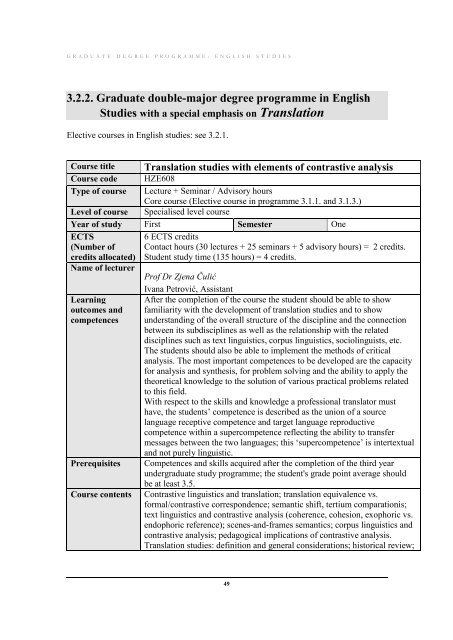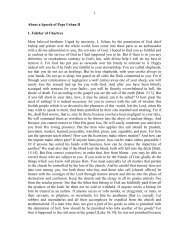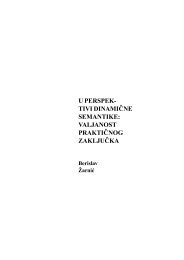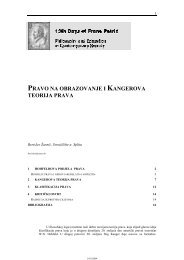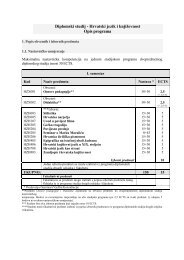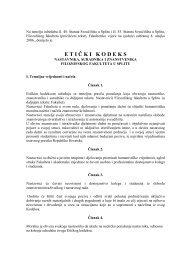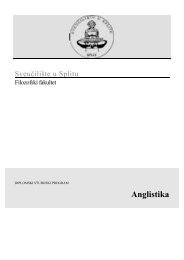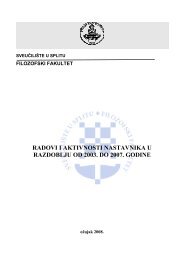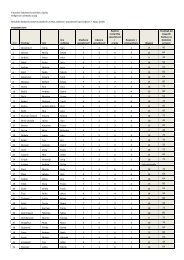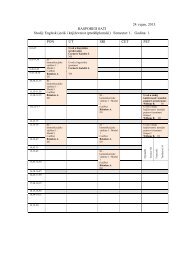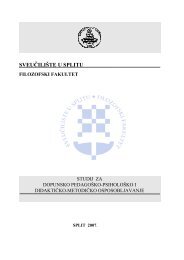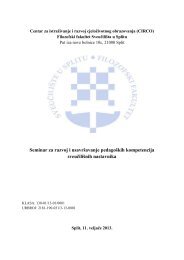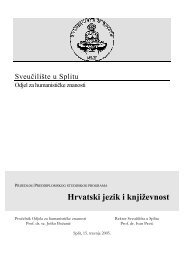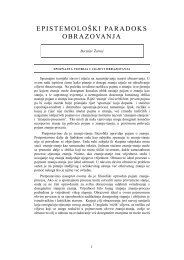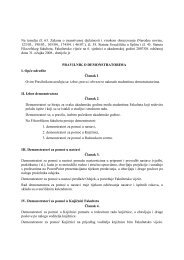English Studies
English Studies
English Studies
You also want an ePaper? Increase the reach of your titles
YUMPU automatically turns print PDFs into web optimized ePapers that Google loves.
G R A D U A T E D E G R E E P R O G R A M M E : E N G L I S H S T U D I E S<br />
3.2.2. Graduate double-major degree programme in <strong>English</strong><br />
<strong>Studies</strong> with a special emphasis on Translation<br />
Elective courses in <strong>English</strong> studies: see 3.2.1.<br />
Course title Translation studies with elements of contrastive analysis<br />
Course code HZE608<br />
Type of course Lecture + Seminar / Advisory hours<br />
Core course (Elective course in programme 3.1.1. and 3.1.3.)<br />
Level of course Specialised level course<br />
Year of study First Semester One<br />
ECTS<br />
(Number of<br />
credits allocated)<br />
6 ECTS credits<br />
Contact hours (30 lectures + 25 seminars + 5 advisory hours) = 2 credits.<br />
Student study time (135 hours) = 4 credits.<br />
Name of lecturer<br />
Prof Dr Zjena Čulić<br />
Ivana Petrović, Assistant<br />
Learning After the completion of the course the student should be able to show<br />
outcomes and familiarity with the development of translation studies and to show<br />
competences understanding of the overall structure of the discipline and the connection<br />
between its subdisciplines as well as the relationship with the related<br />
disciplines such as text linguistics, corpus linguistics, sociolinguists, etc.<br />
The students should also be able to implement the methods of critical<br />
analysis. The most important competences to be developed are the capacity<br />
for analysis and synthesis, for problem solving and the ability to apply the<br />
theoretical knowledge to the solution of various practical problems related<br />
to this field.<br />
With respect to the skills and knowledge a professional translator must<br />
have, the students’ competence is described as the union of a source<br />
language receptive competence and target language reproductive<br />
competence within a supercompetence reflecting the ability to transfer<br />
messages between the two languages; this ‘supercompetence’ is intertextual<br />
and not purely linguistic.<br />
Prerequisites Competences and skills acquired after the completion of the third year<br />
undergraduate study programme; the student's grade point average should<br />
be at least 3.5.<br />
Course contents Contrastive linguistics and translation; translation equivalence vs.<br />
formal/contrastive correspondence; semantic shift, tertium comparationis;<br />
text linguistics and contrastive analysis (coherence, cohesion, exophoric vs.<br />
endophoric reference); scenes-and-frames semantics; corpus linguistics and<br />
contrastive analysis; pedagogical implications of contrastive analysis.<br />
Translation studies: definition and general considerations; historical review;<br />
49


